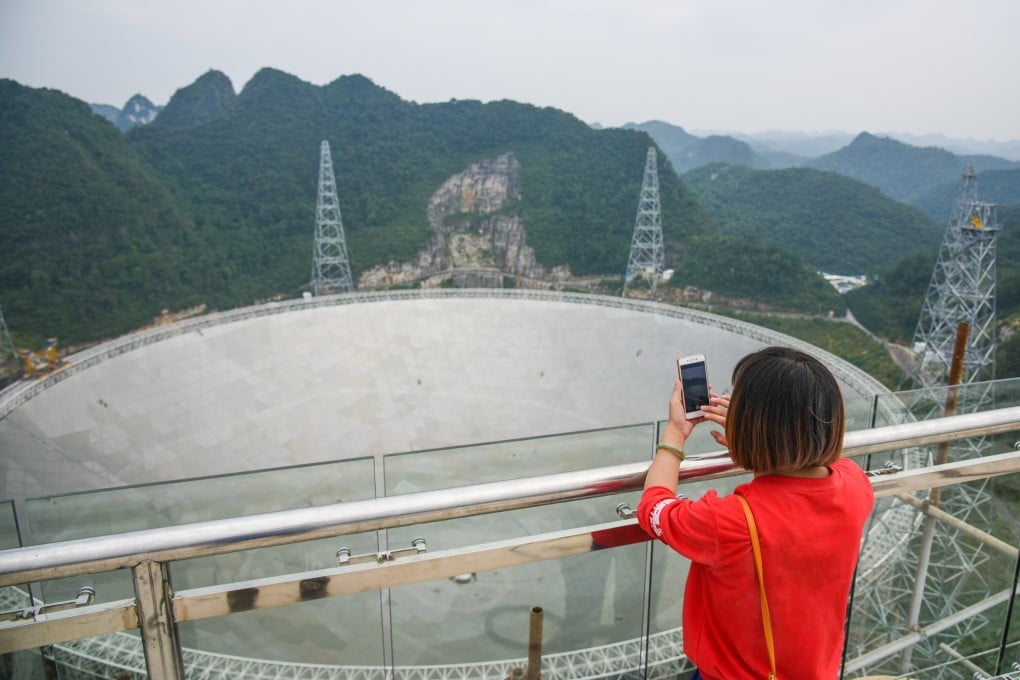Advertisement
Inside China Tech: FAST keeps big eye on space after Arecibo collapse
- FAST – short for Five-hundred-metre Aperture Spherical Telescope – has a dish as large as 30 football fields
- Dubbed ‘Sky Eye’ by Chinese authorities, FAST is expected to be open to foreign scientists from next year
3-MIN READ3-MIN

Hello, this is Bien Perez from the South China Morning Post’s Technology desk, with a wrap of our leading stories this week.
Puerto Rico’s massive space telescope, the Arecibo Observatory, has ended 57 years of astronomical discoveries after sustaining severe damage since August of this year. The 900-tonne instrument platform of the telescope, which was featured in the 1995 James Bond film GoldenEye starring Pierce Brosnan, collapsed on Tuesday.
That has left China’s Five-hundred-metre Aperture Spherical Radio Telescope (FAST) as the world’s only giant, single-dish space telescope in operation.
Advertisement
Dubbed by Chinese authorities as “Sky Eye”, FAST was initially opened for domestic astronomers in April last year and became fully operational in January this year.
The world’s largest full dish telescope, which has been featured in an episode of US science documentary television series Cosmos: Possible Worlds, comprises an area that is as large as 30 football fields and is 2.5 times more sensitive than Arecibo, according to the Chinese Academy of Sciences (CAS).

01:08
World's largest radio telescope starts operating in China
World's largest radio telescope starts operating in China
FAST, however, is expected to be open to foreign scientists from next year, according to a report last month by state-backed media People’s Daily.
Advertisement
Select Voice
Select Speed
1.00x